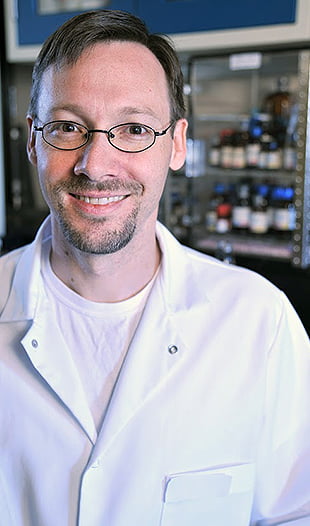What happens when you take math and chemistry degrees from Hastings College and combine them with advanced studies in chemical and biomolecular engineering? If you’re Dr. Jeff Erickson ’97, you help the U.S. Navy design and build scientific instruments that help detect biological threats.
Erickson is a staff engineer at the Naval Research Laboratory, the U.S. Navy’s corporate laboratory in Washington, D.C., where he is working to design highly sensitive and accurate novel sensors for detection of biological threats. He also does work with upper respiratory pathogens like SARS and bird flu, tropical diseases like Ebola and hemorrhagic fever, and food-borne pathogens.
This year, Erickson was one of 100 top engineers under age 45 in the nation selected to attend the U.S. National Academy of Engineering’s 2016 Frontiers of Engineering Symposium in Irvine, California. During the September symposium, engineers from industry, academia and the U.S. national labs learned about computer vision, engineering in extreme environments, water desalination and cancer treatment.
“Most of the action took place between the sessions,” Erickson said, mentioning topics like solar energy, Mars exploration, hardware for virtual reality headsets and climate change in the Arctic Circle. “I had the
opportunity to meet and connect with some truly
extraordinary people.”
After graduating from Hastings College, Erickson
earned master’s and doctorate degrees from the Johns Hopkins University and began doing postdoctoral research at the Naval Research Laboratory in 2005. He joined the lab as a full-time engineer in 2008 and has spent time working on alternative energy projects and nanotechnology, in addition to designing and building first-generation scientific instruments for use in the field.

